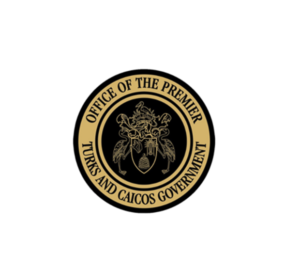Government
Biometrics for visitors and more passed cabinet, minister explains
Published
1 year agoon

By Dana Malcolm
Staff writer
#TurksandCaicos, March 31, 2023 – Protecting the TCI Immigration system from abuse, a key factor driving the digitization of our borders and a business case is already being created to facilitate it, says Arlington Musgrove, Minister of Immigration and Border Services.
Describing the process as transformational, the minister explained it would be done in phases; it’s already laid out at Cabinet.
“The scale of our ambition is significant and is in three parts – an end-to-end border management system with an online customer portal, the introduction of biometrics for all non-citizens and automation technology-likely to be electronic gates – on arrival at the international airport.”
electronic gates – on arrival at the international airport.”
Minister Musgrove explained why it was so important to have these capabilities installed in the country, which has had recurring issues with illegal migration, both by sea, and by air from residents overstaying work permits to simply arriving for vacation and not going back home.
“Locking non- citizens into a biometric identity will make our system more robust; biometrics will help us quickly identify persons who have broken the immigration rules – persons who have entered unlawfully for example – and prevent them from simply changing their identity to gain legal status. Digital borders also include a pre- entry portal, which will allow us to screen prospective travellers before they even arrive.”
The Immigration Ministry began this work under the former Government Administration, through consultation and support from the UK Government and local stakeholders including DETI. Now, following a detailed ‘discovery’ process to identify the technical requirements and approximate budget for the project, Musgrove said he and his team are hoping to be ready to move forward with procurement when the 2023-2024 National Budget is tabled.
You may like
-


TCI rolls out measures to protect against Haiti security crises
-


Arlington Musgrove versus TCI Integrity Commission
-


2023 Illegal Immigration bill could hit $7.9 million for TCI
-


Ocean Breeze Resort Opens in North Caicos
-


You can now fly Silver Airways into Turks & Caicos
-


Fire Truck coming for North Caicos says MP
Government
Julianna Musgrove Appointed as Deputy Permanent Secretary
Published
1 hour agoon
April 17, 2024By
Shanieka
Office of the Deputy Governor of the Turks and Caicos Islands proudly announces the appointment of Ms. Julianna Musgrove to the post of Deputy Permanent Secretary within the Office of the Deputy Governor.
Ms. Musgrove’s academic journey is marked by excellence and dedication. She earned her Bachelor’s degree with honors in Hos
pitality and Tourism Management from the Turks and Caicos Islands Community College, demonstrating a commitment to academic achievement and professional growth. Currently, she is on the cusp of completing her Master’s degree in Human Resource Management and Development from the University of Salford in the United Kingdom, further enhancing her knowledge and expertise in her chosen field.
With over a decade of leadership experience in learning and development, human resources, and hospitality, Ms. Musgrove brings a wealth of knowledge and skills to her new role. Prior to her transition to the civil service, she served as the Regional Learning and Development Manager at Sandals Resorts International, where she oversaw learning and development operations across multiple Caribbean nations. Her adept leadership skills have been evident in successfully spearheading change initiatives and development programs at an executive level.
Ms. Musgrove’s contributions extend beyond her professional pursuits. She has served as a Governor on the Board of Governors for the Turks and Caicos Islands Community College, where she chaired the Human Resource, Safety, and Compensation sub-committee, demonstrating her commitment to education and community service. Additionally, Ms. Musgrove is an Executive Member of the Turks and Caicos Islands Community College Alumni Association, actively contributing to the growth and development of her alma mater.
Her exceptional achievements have garnered widespread recognition, earning her prestigious accolades such as the 2023 Caribbean Rising Star Award from the International Society of Hospitality Consultants and the Sandals Foundation Sentinel of the Year Award.
Reflecting on her appointment, Ms. Musgrove expressed her gratitude and enthusiasm for the opportunity to serve in her new capacity:
“It is with a profound sense of gratitude and humility that I assume the role of Deputy Permanent Secretary. I am eager to embark on this journey to serve my country with dedication and commitment. My faith in God sustains me, and I am immensely grateful for the unwavering support of my family, mentors, and friends.
This appointment is not just a milestone in my career; it is also a profound responsibility that I embrace wholeheartedly. With great optimism and enthusiasm, I look forward to the challenges and opportunities that lie ahead.”
Commenting on her appointment, Deputy Governor and Head of the Public Service, Her Excellency Anya Williams remarked, “It is with great pleasure that I extend congratulations to Ms. Julianna Musgrove on her appointment as Deputy Permanent Secretary within the Office of the Deputy Governor, and I extend a warm welcome to her as she joins the Turks and Caicos Islands Public Service.
As my office continues to forge ahead with various initiatives aimed at enhancing service quality and bolstering our capacity building endeavors, Ms. Musgrove’s role will be instrumental. Working alongside the Permanent Secretary, she will play a pivotal role in the re-establishment of the Training Directorate, spearheading the development of a comprehensive training program tailored to address skill gaps and developmental needs across the Public Service. Additionally, Ms. Musgrove will oversee the Employee Compliance and Appraisal functions, ensuring that performance is meticulously monitored, corrective measures are swiftly implemented, and commendable efforts are duly rewarded.
The appointment of Ms. Musgrove comes at a critical juncture, and her expertise and dedication will undoubtedly fortify our efforts to enhance the services we provide to the public. My office is committed to providing Ms. Musgrove with the support as she embarks on this new chapter, and we eagerly anticipate the positive impact she will undoubtedly make as a valued member of our public service family.
Congratulations on your appointment, Julianna, and welcome to the team!”
Government
BUDGET ADDRESS BY PREMIER HON. CHARLES WASHINGTON MISICK
Published
8 hours agoon
April 16, 2024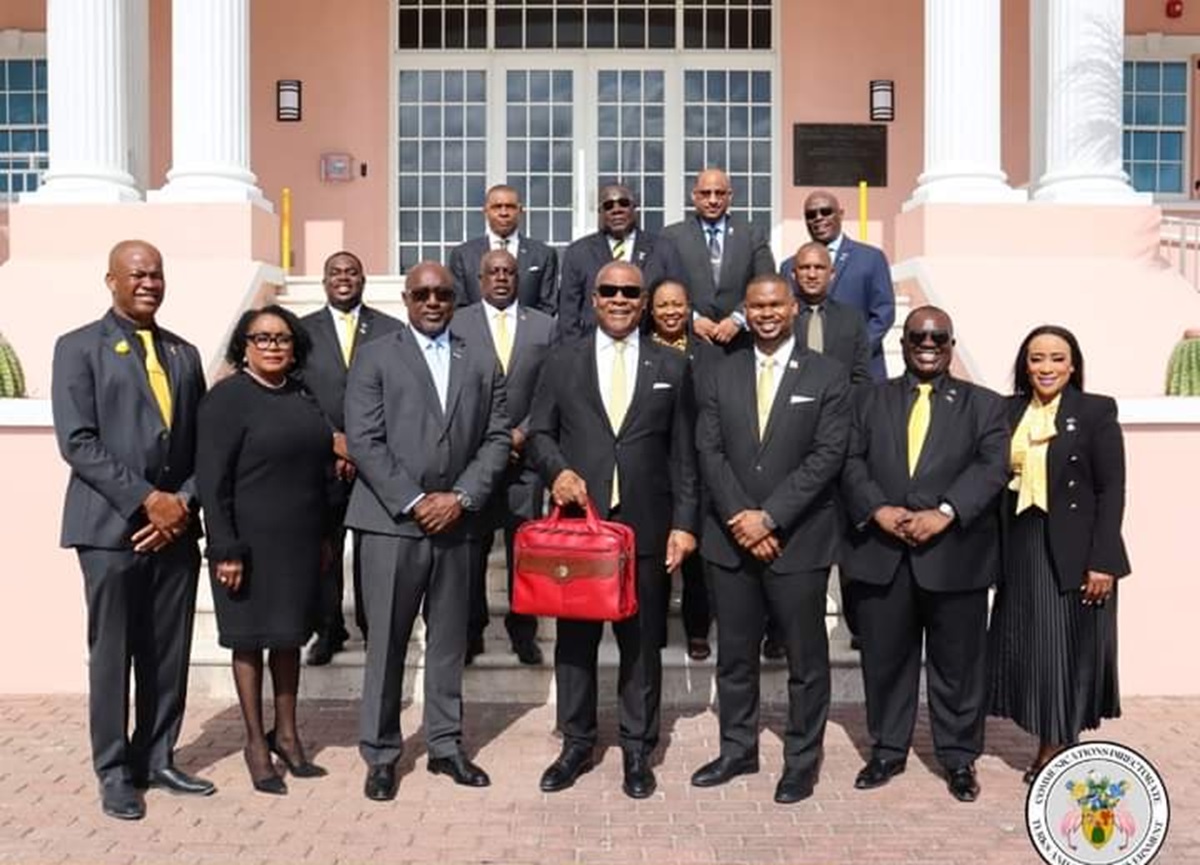
BUDGET ADDRESS 2024/2025
MINISTER OF FINANCE, INVESTMENT, TRADE & PUBLIC POLICY
HON. C.W. MISICK
APRIL 16, 2024
THEME: DELIVERING FOR YOU…
MORE IN 24
Thank you, Mr. Speaker!
A man’s heart devises his way: but the Lord directs his steps. –
Proverbs 16v9
President John F Kennedy said at his inaugural address; “With a good conscience, our only sure reward, with history, the final judge of our deeds, let us go forth to lead the land we love, asking His blessing and His help, but knowing that here on earth God’s work must truly be our own.”
SALUTATIONS AND RECOGNITION
- Speaker
- Hon Cabinet Ministers
- Leader of the Opposition
- All other Hon. Elected Members
- Appointed Members
- Attorney General
- Distinguished Chaplain
- Distinguished ladies and gentlemen
- Distinguished guests in the gallery
To those watching on social media, on television and to the diaspora, thank you for tuning in.
After much delay, it is a joy for us to be back here in NJS Francis Building where the House of Assembly rightfully belongs.
Nathaniel Joseph Selver Francis was one of our greatest sons. He was a fearless warrior, a patriarch and a founding father of this great party and on whose shoulder I stand.
We could bestow on him no greater honour than giving the people’s house and the seat of our democracy his name.
I thank God Almighty and you the people for the honour and privilege, to stand before the country I love, to deliver another budget address in this term of this great PNP administration.
Mr. Speaker, thank you for the stellar role you have played in ensuring the orderly management of the proceedings of this house whether here, or at HJ Robinson High School.
I thank my colleagues and political travellers for your support and your tireless work on behalf of our people.
You are making a difference.
I also wish to acknowledge the work of former Minister of Finance, Investment and Trade, the Hon. E. Jay Saunders. He anchored this very important portfolio for over two years and has ably chaired the Appropriations Committee. He remains an integral team member in the delivery of our promises to the people of our beloved country.
To the Leader of the Opposition, I appreciate the critical parliamentary role you play. We are competitors for the hearts and minds of our people. I thank you for the times you have supported this government’s legislative agenda in the national interest. I appreciate your genuine difference of opinion.
To the Governor’s appointed members! You have made such an invaluable contribution to this House, the people of these Islands and the cause of democracy.
I thank the staff of the House of Assembly who serve with dignity, grace and professionalism.
To the amazing team at the Ministry of Finance, Investment and Trade who go beyond the call of duty. Permanent Secretary, Athenee HarveyBasden, Deputy PS, Nasiya Misick, Budget Director, Ms. Nordia Campbell and your teams and the staff in the Treasury my sincere thanks.
Thanks to the staff of all agencies which operate under the umbrella of the Ministry of Finance, Investment and Trade.
To the staff in the Office of the Premier and Public Policy, and the Strategic Planning and Policy Department led by PS Shonia Thomas-Been, Deputy PS, Lormeka Williams, Director Kathleen Forbes and her team, Director Kimo Tynes and the team in the Communications Directorate, my personal support team, the administrative and ancillary staff who take such good care of us. Thank you.
To all other Accounting Officers, our sincere thanks.
My thanks to the staff in the Attorney General’s Chamber’s especially the drafters who went beyond the call of duty to get the appropriations bill ready.
Mr Speaker, most important are the people we work for.
I extend my sincere gratitude to the people across these islands who keep the government in your prayers, who provide constructive criticism and demand the best from us.
We are privileged to work on your behalf.
I will continue to strive every day to be a good steward of the resources of our country.
I will continue to devote myself to improving the standard of living of our people and getting these beautiful islands as close as possible to developed country status by 2040.
Mr. Speaker, without the love and support of my family, I could not do what I do.
To my defender and chief critic, my dedicated wife, Delthia, my understanding children and my extended family. Thank you.
THE PEOPLE’S CONTRACT
Mr. Speaker, for the last three years, every budget has been rooted in the People’s Contract.
We have honoured the mandate given to us by the people by staying faithful to the promises we made.
We promised to:
- Put our people first!
- Put our people at the centre of development!
- Turn the economy around! and
- Rebuild the country!
Mr. Speaker, Iet us recall where we are coming from.
On February 19, 2021, the world was facing a pandemic, people were scared, economies were crashing. Worry and despair were the only flavors being served.
My government took an economy that had shrunken. We not only turned it around, but we are fulfilling our promises to the people.
We are delivering!
- We are creating better paying jobs and more will come on stream with each new development.
- We are developing high quality and lasting infrastructure.
- We are creating an immigration system that is reinforced by the new Border Force and will support the development of our Islands.
- The pillars of the economy are strong.
- The economy is expanding.
- Tourism is booming and the number of high-net-worth visitors continues to grow.
- Investor interest is very high. For the foreseeable future we will have well-resourced development projects.
- Speaker, one of my greatest joys is that more Turks and Caicos Islanders, helped by targeted concessions are entering the Tourism Industry.
Mr. Speaker, the People’s Contract is crafted around growth and development that are people centered. It puts the welfare of our people first.
Our main focus is to give our people a chance to benefit from the many promises that this country holds for the long term.
In these 38 months, we have laid a strong foundation to advance growth and development and set the TCI on the path to developed country status.
When we took office, we knew we had to change course and give people a lifeline.
When economic circumstances change, the responsible thing for the government to do is to anticipate, adapt and shape a path that will protect and help the people.
Mr. Speaker, this government believes that when hard time comes, we must help our people.
That is why we spent almost 30 million dollars in stimulus grants to help them.
From day one, we implemented policies and programmes to kickstart the economy and those are paying off.
Mr. Speaker, our mission is to build an economy that gives our people access and opportunity.
I stand here today proud because we have fulfilled so many of the promises we made in the People’s Contract.
Mr Speaker, I may sound like a stuck record.
But!
As I have said over and over, given the time we will deliver on every pledge.
This is a party that is delivering for all generations, and we will deliver more in twenty-four!
GLOBAL ECONOMIC CLIMATE
Mr. Speaker, the TCI does not operate in a vacuum. We are part of the wider global economy.
The IMF is forecasting global growth of 3.1 percent in 2024 and 3.2 percent in 2025.
However, it has cautioned that there are risks, including geopolitical tensions such as the Russia/Ukraine war, armed conflict between Israel and Iran and disruptions to shipping in the Red Sea.
The World Bank has a less favorable outlook. It is forecasting that Global growth will slow to 2.4 percent.
The mixed outlook means the TCI, has to be nimble in its policy and decision making.
We have to spend wisely and ensure that our people are protected.
Mr. Speaker, Global inflation is expected to fall to about 5.8% in 2024.
If this forecast holds, we expect that it will have a positive impact on the prices of basic items that our people need.
INFLATION
Mr. Speaker, we endured a once-in-a-century global pandemic.
It was followed by a major international energy crisis, perhaps the worst in 50 years.
Together, they inflicted profound economic consequences on supply chains, energy prices, inflation and interest rates.
Mr. Speaker, the cost of living has increased significantly over the last 3 years. We know that for many people, their pay cheque cannot stretch to meet all of their needs.
One thing that keeps me up at night is the constant quest to find ways to help our people, especially those in the lower middle-income bracket and below the poverty line.
Mr. Speaker, our macro-economic success must translate to human and social development.
It MUST mean well-organized functioning communities, where modern amenities are available, and it MUST mean a better life for all.
This is why helping our people with the cost of living is our government’s number one priority.
Mr. Speaker, that is why my government:
- Denied the request for a 6% increase on the utility rate. However, we,
- Extended the reduction on fuel tax.
- Extended the exemption for customs duty on the basket of goods.
- Increased the minimum wage.
- Implemented the recommendations of the pay and grading review for the civil service, giving all public servants a pay increase.
- Will commence a salary review of all TCIG statutory bodies immediately.
- Increased the TCIG pensions by 20%.
We are delivering for the people and will do more in 24!
UNEMPLOYMENT
Mr. Speaker, the unemployment rate is trending down. It has moved from 9 percent in 2021, to 6 percent in 2023. We expect it to be around 5 percent this year.
ECONOMY – WHERE ARE WE?
Mr Speaker our quality of life, and the state of the Turks and Caicos Islands depend on the strength of the economy.
In 2021, when we took office, we implemented a series of strategies and programmes to grow the economy.
By 2022 and 2023, our economy was experiencing a growth spurt, with rates exceeding 12 percent.
And!
Mr Speaker, the projections are, that in this financial year, we will have a continued expansion of our economy driven by high tourist arrivals.
Today the economy of the Turks and Caicos Islands is stronger than ever.
Our policies and programmes are delivering good results. We will do more in 24!
In 2023, we welcomed more than 1.5 million visitors by air and sea.
Air arrivals increased in 2023 to 662,707 visitors, up over 2021 by more than 52 percent.
Mr. Speaker, arrivals by air are up 21.6 percent over the 2019 prepandemic levels. At the same time, the demand for rooms is growing as these islands are among the most desirable destinations in the world.
That is why the redevelopment of the Howard Hamilton International Airport is so critical.
In 2023, we had nearly 925 thousand cruise passengers, an increase of almost 26 percent over 2022.
After completely shutting down during the pandemic, the growth momentum is good.
We expect cruise passengers to surpass pre-pandemic levels in short order.
We will do more in 24 to enhance our brand and sustain revenue from tourism.
FOREIGN DIRECT INVESTMENTS
Mr. Speaker, our economic future is looking bright and more certain.
Investor confidence is extremely high.
Foreign Direct investments are flowing at a pace we have never seen before. It is only limited by our ability to accommodate the growing demand.
Members of this Honourable House! This is a different investment climate.
We have the luxury of choosing the right investments and the right partners.
Our goal is to maintain an investment policy that will benefit our people and help build our country for the long term. We want higher paying jobs, entrepreneurial opportunities, knowledge transfer and new technologies.
Projects in varying stages of development valued at over four billion dollars are in the pipeline.
Projects with development agreements or currently under construction are valued at nearly 792 million dollars.
Projects with MOUs in place with the finalization of development agreements in progress are valued at over 2-point -7 billion dollars.
And!
Projects at the due diligence stage have a combined value of nearly 453 million dollars.
We are delivering and will do more in 24.
My team is building an economy that is resilient and strong.
We removed tax holidays from new development agreements.
The old policy of long tax holidays for foreign investors and wealthy individuals has facilitated the transfer of tens of millions of dollars into foreign economies and private pockets.
This Mr. Speaker has deprived the TCI of much-needed funding for people and infrastructure development.
By guaranteeing foreign investors exemption from future taxes, it ties the hands of the government in developing a fair and equitable tax structure.
My government has replaced tax holiday clauses in Development Agreements with an Equilibrium Clause which forces foreign investors to comply with any new taxation regime.
Mr. Speaker, the last PDM administration has underwritten the superprofits of some developers (who shall remain nameless).
The PDM supported the splitting of purchase contracts for the development of condominium resorts, villas and the construction of residences for foreign wealthy individuals. This was in contravention of the spirit of the investment policy.
Mr. Speaker, this is how a split contract works.
One contract is for the sale of the land on which the private purchaser pays stamp duties.
And!
The other is a separate contract for the construction of the building for which the developer pays no stamp duty but enjoys a reduced rate on customs duties.
In the PNP, we put our people first and will collect every dollar that belongs to them.
DIRECT DOMESTIC INVESTMENT
Mr. Speaker, charity begins at home!
My government believes that if we are offering Foreign Investors concessions, we must level the playing field for our Domestic Investors.
In October, last year, Cabinet approved a new National Investment Policy.
Recently, the direct domestic investment framework has been added to the Investment Policy.
It prioritizes domestic investment with the aim of growing the number of local businesses and expanding the pool of beneficiaries of TCIG incentives and concessions.
Mr. Speaker, we believe that concessions are important for the survival of local businesses. They ensure that no player is disadvantaged because of size or lack of access to capital.
The Direct Domestic Investment targets locals already operating within the economy and local entrepreneurs who are considering entering the market.
FINANCIAL SERVICES SECTOR
Mr. Speaker, for a long time we have been looking at the Financial Services Sector as a way to diversify the economy.
But!
The Turks and Caicos is lagging way behind.
We are number 113 of 115 on the list of International Financial Centres competitiveness ranking for 2024.
In this region, Cayman is at #75 followed by BVI at #88, the Bahamas at #95 and Bermuda #96.
However, those stark statistics will not deter us. We are operationalizing the long-awaited TCI Finance – a sister entity to Invest-TCI to promote and grow the country’s international financial services industry.
The mandate is to develop a focused niche within the IFC marketplace by attracting global talent and recognized brand leaders.
Our goal is to add a second leg to the economy, expand the domestic professional class, raise the GDP per capita and improve economic sustainability.
Mr. Speaker, the construction and real estate sectors are booming.
Everywhere you turn a new building is going up.
There is a solid pipeline of recently concluded developments and ongoing projects.
Approvals have been given for 20 developments with a combined value of 572 million dollars.
In 2022 and 2023, the real estate industry did exceptionally well, and the earnings were way up.
Mr. Speaker, because of the splitting of purchase contracts for land and the construction by foreign wealthy individuals, which the PDM supported, the government is earning less for stamp duty. That will change.
The growth in industries, including restaurants and hotels, real estate, and transportation, were mostly driven by robust international demand.
IMPORT RECEIPTS
Mr. Speaker, nothing tells a more accurate story about development and construction than our Import Receipts.
Total Merchandise Imports for Calendar Year 2023 were valued at 808 million dollars.
This is an increase of approximately 17.6 percent over 2022.
And!
2024 is looking equally strong.
During the first three months of 2024, Merchandise Imports increased by 14- percent over the same period in 2023.
In the first quarter of 2023, imports were valued at just over $185M.
This year it is $211M.
Total Revenues collected for the financial year 2023/24 was 452 million dollars.
This exceeded the original forecast by $36.6M.
We have maintained a resilient Cash Flow position and strong Cash Reserves.
Due to the country’s strong performance, our government has not had to draw down on any major pre-approved debt facilities at our disposal.
In fact, Mr. Speaker, we have increased our reserves and rainy-day funds.
The National Wealth Fund has grown to $58 million.
It has:
ü $31 million in the Stabilization Fund ü $9 million in the Infrastructure Competitiveness Fund ü $4 million in the Heritage Fund ü $7 million in the Citizen’s Empowerment Fund and ü $7 Million in the Mortgage Corporation Fund.
Mr. Speaker, we have been paying our own way with little reliance on borrowed money.
We borrowed less than $1- million and that was specifically for technical assistance.
Mr. Speaker, Members of this Honourable House, you will recall that there was a significant contraction of the economy in 2020 due to the pandemic.
I am proud to report that since we came to office in 2021, the GDP of the TCI has grown consistently.
Boosted by a booming tourism industry, the real GDP grew by a massive
13.7 percent in 2023.
Mr. Speaker, the economy of the Turks and Caicos Islands is larger than previously estimated.
The TCI has a higher GDP per capita and an economy that is valued at over 1.7 billion dollars in real terms.
Local analysts and the international rating agencies believe that if the strong performance in the tourism, construction, and real estate sectors remains, Real GDP will continue to grow by about 4 percent in 2024.
Mr. Speaker, I am proud to report that on March 27, Standard and Poor’s Global Ratings revised up its outlook on the Turks and Caicos Islands.
S&P moved our rating from stable to positive and affirmed our BBB+ Foreign Currency LT Credit rating.
S&P is of the view that our economy will continue to grow solidly, propelled by a strong tourism sector.
It further states that if this growth materializes in line with its forecast, they could revise upwards the economic assessment of the TCI.
Mr. Speaker this is what S&P Global said:
“We expect Turks and Caicos Islands’ (TCI) tourism-dominated economy to continue growing well, support fiscal surpluses, and enable the territory to build financial buffers, all of which could enhance economic resilience during times of stress.
We have revised our external assessment on TCI to incorporate the longer time series of
external data now available from the TCI Statistics Department, and which reflects moderate gross external financing needs and a small net creditor position”.
The positive outlook reflects the possibility that sustained economic growth, alongside solid fiscal and external indicators, would further bolster TCI’s resilience in the face of shocks and could lead to an upgrade.
Mr. Speaker, that is a testimony to the consistent growth in the GDP and the strength of our economy today and in the near future.
Mr. Speaker, the TCI is one of the best performing economies in the Caribbean.
Our team has worked hard to manage the economy in the face of global challenges.
But Mr. Speaker, we have NOT done so alone.
We have had great support from our people and our many partners in the Private sector.
At every step in the last three years, you have stepped up to the plate when we needed you to.
THANK YOU!
EXPENDITURE 2023/2024
Based on the unaudited Expenditure of the last financial year, our government spent $389.2M.
This was $47.8M below budget.
Just $29M of the 57.8-million allocated for the capital programme was spent.
Mr. Speaker, we must face the hard facts.
We have a capacity problem.
We are facing tremendous challenges in developing and implementing big ticket projects.
Public servants are working hard, but the onerous processes, insufficient resources, inadequate technology, outdated laws, an unwillingness to adapt by some and bureaucracy are frustrating delivery.
That must change.
In this budget, we have allocated 300- thousand dollars for a procurement ordinance review.
We have also allocated 1.8 million in the recurrent budget for project initiation and project development plans.
Our goal is to develop project delivery plans a year in advance.
When done this way, all the essential components of the project would have been determined and the project ready for the procurement process immediately after passage of the budget.
Mr. Speaker, the Leader of the Opposition in a previous debate accused the government of promoting a welfare state.
But!
Mr. Speaker, we believe that it is our duty to prevent prolonged poverty and give those burdened by hardship a hand up.
That is why we have consistently increased our social spending such as day care and after school programmes.
We will do more in 24!
In FY 2021/2022 just over 3.6 million was spent on social development.
We have increased the allocation every year and for 2024/2025, we are spending almost 10.2 million dollars.
Mr. Speaker, we believe in fairness. If helping the vulnerable and those facing hardships and needing a hand up is what defines a welfare state, then this government is guilty as charged.
After all, fairness means providing money to help the poorest among us, the sick, the vulnerable and the elderly.
The PNP will always look after you.
That is the right thing to do.
And, Mr. Speaker, that is the commitment we made in People’s Contract, We will always put you first!
Mr. Speaker, my government’s measure of fairness goes beyond the amount of money we give to those who need help.
More importantly, fairness to us is supporting people out of poverty, not trapping them in a cycle of dependence.
Mr. Speaker, our record on providing opportunities and support for our people is unrivaled.
Mr. Speaker, this is a government that cares!
This is a government that is delivering!
We will do more in 24!
PAY AND GRADING
We also believe that those who work for the government must be adequately paid for their service.
In the last financial year, we spent big on making the lives of our workers and people better. These include:
- $122M in Personnel Costs including wages.
Mr. Speaker, I wish to share some of the increases in the recent pay and grading exercise.
- 57% increase in basic pay for Principals
- 42% increase in basic pay for Vice Principals
- 25% increase in basic pay for Graduate Teachers
- 27% increase in basic pay for Registered/Community Health Nurses
- 28% increase in basic pay for Border Force Officers
- 28% increase in basic pay for Prison Officers
- 28% increase in basic pay for Fire Safety Officers
- 22% increase in basic pay for Social Workers
- 100% increase in Tactical Allowances for the Police
TCIG PENSION FUND
On April 1, 2022 the Turks and Caicos Government implemented a new Pension and Gratuity program for all post 1992 employees.
- Since its implementation, a total of $200K was paid to 21 employees in 2022/23 and a total of $692K was paid to 57 retiring or resigning employees during the financial year 2023/24.
- On March 31, 2024, the Turks and Caicos Islands Pension Fund had a closing balance of $21.2m. This includes $7m in contributions made during the year by both employers and employees of the TCI Public Service and Statutory Bodies.
- Speaker, the Government is in the final stages of contracting an administrator to manage the Pension fund.
We also spent:
ü $35M in Transfers to NHIP ü $26M in Hospital Provisional Charges ü $8.9M in Land Acquisition ü $9.7M on Social Welfare
EXPENDITURE 2024/25 ESTIMATES
Mr. Speaker and fellow countrymen, we expect continued growth and expansion of the economy for the near to medium term.
We will continue to spend wisely and focus on the projects that will promote the development of our islands and prepare us for 2040.
Importantly, Mr. Speaker, we will spend more on social programmes that will help the poor and the middle class improve their standard of living.
Mr. Speaker, this year, we plan to spend $485 million in total.
This is an increase of more than $48.3 million over last year.
- $413.5M represents Recurrent Expenditure, such as Salaries, Wages, Goods and Services.
- $7.3M is for non-recurrent expenses
And!
- $63.7M for Capital Development, such and land, acquisition.
We anticipate an operating deficit of $19.5 million which will be covered from reserves of prior years.
The government’s overarching priority continues to be long-term fiscal sustainability.
However, in the medium term, we are focused on critical areas such as:
- Advancing vital National Infrastructure Development, including airports, ports, roads, bridges, electrification, healthcare facilities, educational institutions, judicial infrastructure including courts, and remand and detention centres.
- Implementing Social Welfare Programmes to safeguard vulnerable segments of the population from economic uncertainties and challenges.
- Easing the Cost of Living.
- Strengthening National Security.
- Enhancing Solid Waste Management practices.
- Preserving our Environmental Integrity.
- Expanding access to affordable, reliable, sustainable, and modern energy sources.
- Aligning the National Scholarship Programme with the National Skills Audit of 2017.
And!
- Facilitating Affordable Housing Initiatives to ease the housing shortage.
Mr. Speaker, the budget is divided into 10 critical areas based on the Classification of the Functions of Government (COFOG) as defined by the United Nations Statistics Division.
- General Public Services
The largest allocation of $117.4M will support the public service operations. Including the offices of the Governor, Deputy Governor Office of the Premier, financial and fiscal affairs and the House of Assembly.
- Health
Mr. Speaker, the health of our people remains a priority for our government. We have a healthcare system that is better than most in our region. But it needs repair and must be more comprehensive, including a focus on geriatric care. We reiterate our determination to build a healthcare system that prioritizes the needs of all our people.
We want our people especially family-island communities, to have more choices, including access to tele-health, lower prices and better care.
We will not achieve the development goals, unless we have a population that leads healthy, balanced and more productive lives.
We continue to have concerns over the healthcare contract with InterHealth Canada (IHC) which has not delivered what we expected and for which value for money is questionable.
We are implementing a better contract management system that will hold all stakeholders more accountable and improve the delivery of care.
We are allocating just over $90.5M to health care delivery.
Our focus remains the provision of quality care.
- Economic Affairs
Mr. Speaker, $86.5M has been allocated to Economic Affairs. This will fund important areas such as:
- Infrastructure development, including land acquisition
- Tourism product enhancement
- Agriculture
- Catastrophic risk insurance
- Environmental and coastal resources
- Energy and utilities
- Media and communication
- Public Order and Safety
Mr. Speaker, in recent times criminals have wreaked havoc on our communities.
My government sees the safety and security of our people as a sacred responsibility. When crime threatens the security and safety of our people, especially our children, we will do everything in our power to find and stop the producers and perpetrators of violence.
Mr. Speaker, we have spent millions of dollars to expand and equip the police force, the border force and the TCI Regiment. Currently the Regiment has 20 permanent staff and 40 Reserves. They are currently recruiting 30 more reservists which will bring their complement to 90.
If we had not taken the steps we took, and invested so much in our national security, I believe things would have been far worse.
$71.6M has been allocated to public order and safety for this financial year. It will cover all agencies, including the Police and the courts to deal with crime and rehabilitation.
Of this amount:
- $39.0 M will go towards Police Services.
- $20.9M is for the Law Courts, AG Chambers, Director of Public Prosecution, and the Labour Tribunal.
- $19.2M is for Customs and Border Protection, Immigration, and Repatriations.
- $7.7M for Prisons, Correctional, and Rehabilitation Services.
- $1.5M dollars has been allocated for Fire and Rescue.
Mr. Speaker, our investments are reaping benefits.
- A New Gangs, Drugs and Guns Unit has been operating since May last year. ü Since then, 17 persons have been charged with offences including gang membership, possession of firearms and drugs.
- Since January last year, 27 firearms have been taken off the streets.
- Last year we had over 6-hundred drug seizures at Howard Hamilton International Airport. ü Recently, 61 pounds of narcotics were seized during a search on a vessel that illegally landed in Providenciales.
Mr. Speaker, we are delivering and will do more in 24!
- Education
The allocation to Education is $58.7M. No government in the history of this country has done more to modernize the education system, including catering to special needs/and differently abled students.
We are creating modern and better schools that are equipped to prepare our people with the skills, knowledge, experience, and confidence to lead productive and meaningful lives.
Our people must have the access to develop the technical and other capacities to help drive sustainable development across all islands. Free community college, more scholarships and support are intended to promote higher education.
- We are also focused on improving early childhood and special education. And! will continue to invest in primary, secondary, tertiary, and vocational education.
- Speaker, in keeping with our thrust to give the people who need it more support, we implemented the Early Start Daycare Assistance Programme which supports 134 children (0 to 3 years old) in 20 Daycare Centers. This programme will cost $686k. Mr. Speaker, we can never put a monetary value to caring for our children.
- We are spending $770K on the Social Enrichment Academic
Afterschool Programme. This will benefit 1,707 students.
And! Mr. Speaker!
- We are launching a $1.4M nutritional programme for students this financial year.
Mr. Speaker! Our young people, especially those who are vulnerable because of their circumstances, need special attention. In addition to the free tuition at the community college, we are looking at programmes that allow high school graduates to earn a stipend while learning a skill.
- Social Protection
Mr. Speaker, the good book of Proverbs tells us: “Whoever is generous to the poor lends to the Lord and he will repay him for his deed.”
Let me repeat. This PNP government is determined to take care of the poor and most vulnerable in this country.
Mr. Speaker, we can speak about the strength of our economy and the development of infrastructure but that means little if the lives and the standard of living of our people are not improved.
Our people must reap the rewards and benefit from the bounty of this land.
You can see our commitment by our increased support for meaningful social programmes in each budget cycle.
In this budget, we carved out $26.9M to help the poor and vulnerable and take care of our pensioners.
We are very conscious of those who still live on the margins and need a helping hand.
We want to ensure that families with young and special needs children and the elderly get the support they need.
The additional funding will ensure that:
- Households with single parents, special needs and disabled children can get $500 for each child monthly for up to three children.
- Vulnerable persons over 70 years old receive 1-thousand dollars monthly if they have no income. Pensioners who receive less than 1-thousand dollars will get a top up. ü Foster Care families receive $300 weekly per child for up to three children per household.
Mr. Speaker, we can fund the increases in the NIB Pensions.
All pensions awarded prior to March 2021 were increased ranging from 2.1% to 13.2%.
We will continue to examine the socio-economic conditions and adjust support where necessary.
- Estate Management, Housing and Community Amenities
We will spend $18.6M on Housing and Community Amenities.
The increased allocation will support Estate Management, Water Services, including water treatment and distribution to Grand Turk and Salt Cay.
It will also fund improvements to housing and community renewal, as well as District Administrations.
Mr. Speaker, for every human being, a safe place to call home should be a right.
For every family, home ownership is an important part of their wellbeing and stability.
As new hotel rooms come on stream and more persons come here for work, the demand for affordable housing will increase.
Our new housing policy is designed to improve the quality and quantity of housing supply throughout the Islands.
The aim is to provide a minimum of 600 new housing solutions annually.
Mr. Speaker, individuals and developers are building houses and apartments and helping us reach that goal.
Last year, the Planning Department received applications for:
- 293 Stand-alone Homes
- 84 Apartment Buildings with a total of 453 Units
From January to April 12, 2024, applications were received for:
108 Stand-alone homes
31 Apartment Buildings with 360 units
This is a strong indication of confidence in the economy and the empowerment of our people through concessions.
We put people first!
Mr. Speaker, let me recap.
Since January last year, planning has had 401 applications for standalone homes and 115 applications for apartment buildings for a total of 813 units.
We are making progress, but we will do more in 24.
We are engaging with the private sector to find different solutions to meet all the needs of our people.
These will include TCI Islander home ownership, rental support for lowincome families, and immigrant housing.
This will be achieved through new construction, upgrading of housing in established communities and improving infrastructure where necessary.
Mr Speaker, our first priority is to ensure that the housing needs of Turks and Caicos Islanders are met.
We are coming up with different ways to fix this problem, including giving financial support to islanders to upgrade their homes.
Nearly 300 grants of between 10 thousand to 50 thousand dollars will be disbursed.
Work should begin in the first quarter of this fiscal year.
Contractors were recently approved and will receive their scope of work in short order.
TC Islanders and BOTC are entitled to stamp duty exemptions and customs concessions.
Those who want more information on the requirements can log on to www.exemptions.gov.tc.
Mr. Speaker, we have started work on a Mortgage Corporation to benefit Status Holders who need loans to build or buy homes.
In last year’s budget, 7 million dollars was allocated and this year, a further $13 million is proposed. An amendment is proposed to accommodate this when Committee of Supply meets after the debate.
We will continue to inject money until the fund reaches 50 million dollars.
Mr. Speaker, we are making good progress on operationalising the credit Union.
Central Finance Facility Co-operative Society of Trinidad and Tobago has been contracted to set up the credit union.
They will:
- Lead the acquisition of licenses.
- Handle the roll out of basic product offerings.
- Find suitable facilities.
- Develop a risk management framework including internal controls, policies, and procedures.
In 2022/23, we allocated 7 million dollars to seed the fund.
This is a game changer for so many, especially small business owners who may not have collateral but need working capital.
- Defense
Mr. Speaker, the beautiful waters that surround these islands have given us so much. Whether salt, conch, fish and the strength of our modern economy, Tourism.
But Mr. Speaker, these open waters that surround us leave us vulnerable to illegal immigration, the illegal drug trade, poaching, firearm smuggling, and other illicit activities.
We must always be one step ahead of them.
Our goal is to facilitate the legitimate flow of people and goods, and to protect our people from harm.
Over $9.6M will be spent on the National Security Secretariat which includes the Contingent Military Force/TCI Regiment and disaster management.
- Environmental Protection
Mr. Speaker, while our economy is strong, we are too aware that a catastrophic natural disaster can wipe out all our gains and cause devastation.
It is in our interest and long-term survival to:
- protect our environment and marine life.
- Promote sustained and sustainable inclusive development.
- Protect our biodiversity.
- And act to mitigate climate change.
We have allocated $3.1M to the Department Environment Coastal Resource, DECR to fortify the TCI and make us more resilient to natural disasters,
Mr. Speaker, we are about to launch a Tourism Carrying Capacity (CC) model for the Turks and Caicos Islands.
It is the first comprehensive tourism public tool of its kind to monitor and manage the impacts of the tourism industry in the region.
The project aims to provide stakeholders with valuable indicators for crafting sustainable policies and strategies, alongside development.
It considers 16 sectors to assess the socio-economic, cultural, and environmental impacts of tourism.
A dashboard will be made accessible to the public to monitor and evaluate key aspects of sustainable tourism practices in the Turks and Caicos Islands.
- Culture
$1.3 million has been allocated to cultural development, and community activities.
MAJOR PRIORITY INITIATIVES
Mr. Speaker, the main spending priorities for the public service are:
- $157.3M for staff costs, including adjustments for the pay and grading exercise. This is an increase of approximately $30.7 million compared to the previous year.
- The new expenditure will give us 28 new positions. 10 to the Border Force and 10 new marines to increase permanent staff in the TCI Regiment from 21 to 31. The remaining 8 staff will be placed across the rest of the public sector.
- $3.5 million is being provided for the pay and grading exercise of subvention-supported statutory bodies.
- $3.1 million for the Senior Citizens’ Financial Assistance Programme.
- $1.4 million will cover an increase of 20 percent for pensioners and former legislators.
- $900K will support MSME Investment, which includes funding for training programs, technical assistance, and opportunities for business development.
- $6 million for the Community Enhancement Projects/Works Programme across all islands.
These funds will support and maintain public facilities and strengthen activities within the District Commissions.
- $1.5M will be added to the Social Welfare allocation for a total of $10.1 million.
- An additional 300K for the Prison Reforms and the Juvenile Intervention and Diversionary Programme to review the prison resourcing model within the Department of Correctional Services.
- An additional 800K to Culture and Heritage to preserve societal identity, enhance education and awareness, stimulate economic growth, promote social cohesion, and preserve diverse human history and traditions.
- $500K more is allocated for Improving Disaster Resilience.
This will be used to procure equipment, office space, and cooling systems to accommodate specific items during a disaster.
- An additional $800K will support additional staff and enhance the growth and capability of the TCI Regiment. This will strengthen the islands’ security against illicit activities.
- $3.7 million for the Border Force to bolster border security and enhance the capacity to combat various illicit activities.
- $500K more to Border and Immigration Services to implement the labour market survey system.
- $2M more to the Ministry of Finance, Investment and Trade to convert government from cash accounting system to an accrual basis of accounting.
- $700K for the Sports Commission to implement new programmes.
And!
- $1.5 million for the school nutrition programme.
PUBLIC SECTOR INVESTMENT PROGRAMME
Mr. Speaker, the Public Sector Investment Programme (PSIP) or Capital Expenditure will receive $19.7M for new spending.
The new projects will be financed through available government resources and are aligned with the priority of the government.
Many are labour intensive infrastructure projects that will create employment and provide income for residents.
There are two national projects, the National Identification System and the Digitalization of Border Services.
3.7 million has been allocated to fund the National Identification System.
This ID will support the rollout of e-government services and the issuance of ID Smartcards is progressing as scheduled.
This allocation will fund the procurement of a card vendor, the cost to design and build a national population registry and expenses associated with data protection legislation.
We expect that the cards will be available by the first quarter of 2025.
The National ID:
- Will provide simple and secure identification of individuals.
- Means that only one card is needed to prove the identity of residents.
- Eliminates the need for verification of a person’s authenticity and legal status with multiple documents.
- Gives all residents a personal unique number, which will be printed and stored on the ID Smartcard.
The card will provide access to a person’s identity information for all public and private organizations legally entitled.
Will facilitate electronic signing and information decryption.
12.6 million has been allocated over a three-year period for the digitization of the Border Services.
Mr. Speaker, we have ensured that the capital programme brings some improvement to each island. Grand Turk and Salt Cay-
- Construction of West Road and Pond Street Bridges – $650K
- Construction of drains and site work at the Helena Jones Robinson High School and remediation works on the Ponds. – $3.6 M
- Upgrading of roads, bridges, and ponds such as Mission Folly and West Road – $3M
- Grand Turk Market and Welcome Centre – $1M
- Matthew Canal works, Salt Cay – $800K
South Caicos
- Improvements to Cockburn Harbour – $500K
- Solar Street Lights – $250K
- Redevelopment of the Conch Ground Facility $1.5M
- Redevelop Regatta Village -$1M
- Community Road Repairs – $3.5 M
North and Middle Caicos
- Renovation of the Bambara Beach Vendor Market – $750K
- Solar streetlights – $250K
- Whitby Roads – $1.1 M
- Renovate and refurbish the Horse Stable Beach Community Park – $500K
- Bottle Creek Community Centre -$1.5M
Providenciales
- New drainage and other improvement work -$3.4M
- Pave and repair roads – $4.9M.
- Upgrade recreational parks in Blue Hills, Kew Town, Five Cays, and the Bight – $500K
- Leeward and Long Bay community roads and solar lights – $500K
- Community Centre for the Bight – $1.5M
- Solar streetlights for the Bight – $250K
- Refurbishing of the Gustavus Lightbourne Sports Complex roof and floor- $800K
- Road works in Kew Town, including pedestrian crossing – $350K
- Solar streetlights for Kew Town – $250K
- Way finder signage for Blue Hills – $150K
- Solar streetlights for Blue Hills – $250K
- Mobile Clinic for Blue Hills – $300K
- Sapodilla Bay in Five Cay – $850K
- Solar streetlights for Sapodilla Bay – $250K
- Paving of roads in Wheeland – $500K
Solar streetlights and recreational pavilion for Wheeland– $750K
Mr. Speaker, the PSIP for FY 24/25 includes projects that started in the last financial year. For some of these projects, there were no tender take-up and for others, the tenders received did not satisfy the evaluation criteria.
SUBVENTION SUPPORT
Mr. Speaker, subvention support excluding NHIP is just under 34.8 million dollars.
For NHIP, the allocation is just under 35.5 million dollars.
SOLID WASTE MANAGEMENT SITE
Mr. Speaker! It has been a long time coming!
My government has taken firm action to reduce and eliminate, over time, the hazardous fires which have plagued the people of Wheeland and its environs.
A three-year contract has been signed with local company TCI Green Ecological Corporation to manage and transform the waste disposal site into a modern landfill.
This contract will lead to regular garbage collection and ensure proper and safe disposal.
This is a win for the people who have suffered from toxic smoke over the years.
This is the first step in Modernising waste management not only in Providenciales but across the TCI.
To protect the land fill from scavengers and stray animals, a perimeter fence is being erected. Additionally, the road around the landfill has been completed giving trucks and other service vehicles better access.
To collect data for policy development, a weight bridge has been installed to give a more accurate assessment of the amount of waste being generated.
As we seek to give the people healthier communities, air quality monitors are being installed to test the surrounding environment.
We are working for our people and we will do more in 24!
FINANCING THE BUDGET
Estimates of Revenue
Mr. Speaker, I have outlined a large spending package for this financial year.
Our revenue is earned mostly from the tourism, construction, real estate, and immigration sectors as well as customs and stamp duties.
We expect the very high levels of tourist arrivals to continue.
I thank our Tourism partners for their imagination, innovation, and commitment to the destination.
The quality of their properties and their high levels of service have placed the TCI among the top destinations in the world.
They have helped make our Tourism brand strong and resilient.
We will continue to work closely with them to improve and expand the sector.
Our goal is the same… to increase both long-stay visitors and cruise passengers.
We are also very happy with the pace of development within the construction sector.
Based on the trend, in the first quarter of this calendar year, we expect healthy increases in hotel & restaurant tax, imports, and in customs processing fees.
Estimated Revenue is expected to be – $465.5 million, an increase of $13.5 million over the unaudited estimates for 2023-2024.
Of this, Recurrent Revenues such as fees, duties and taxes will net about $463million.
Non-recurrent receipts, to include Capital Receipts and Grants from External Donors as well as earnings from the sale of lands will account for another $2.5million.
Mr. Speaker, the biggest contributor to the government’s coffers is:
- Accommodation Tax – $119.6 million. This is followed closely by:
- Import Duties – $112.5 million
- Other Customs Duties – $ 38.8million
- Stamp Duty on Land Transactions -$50 million
- Work Permit – $42.9 million
- Excess Revenue from Ports and Sea Travel Taxes – $11million
- Fuel Tax – $ 10.9million
- Vehicles and Driver’s License Fees – $7.9 million
- Business and Banking Related Receipts -$7.3 million
- Other Receipts -$54.2 million
INFRASTRUCTURE
15 YEAR INFRASTRUCTURE PIPELINE
Mr. Speaker physical infrastructure is the backbone of a nation’s social, economic, and environmental well-being.
It is a critical component for the smooth operation of the modern, first world economy to which we aspire by 2040.
We must be proactive in delivering the critical building blocks for a comprehensive infrastructure network to facilitate growth, ensure the prosperity of our economy and the well-being of our people.
This is a priority that must be above partisan divide.
The Leader of the Opposition has already signaled his agreement in this regard.
Mr. Speaker, today I officially call on the LOO to join me in early May to co-sponsor a resolution to establish a 15-year infrastructure pipeline – leading to 2040.
That would indicate, that regardless of electoral success or defeat, we will remain committed to a unified goal of a modern infrastructure system.
AIRPORTS and PORTS
AIRPORT UPGRADING
To compete effectively in the global tourist market, our airports must be kept in the best condition to handle both commercial and private aircraft traffic.
Eric Arthur Airport Middle Caicos
The terminal building has been renovated and will be tendered for lease during the course of the year. Further aerodrome improvements are under consideration in 2024/25
Clifford Gardiner Airport, North Caicos
23 million will be spent over 3 years on a new terminal building, resurfacing of the Runway and a new perimeter fence.
Norman B. Saunders Snr. International Airport South Caicos
10.3 million is already spent with an additional 5 million to complete exterior works including a car park and lighting. To return the airport to full security compliance, another 1.2 million is being spent to repair the perimeter fence. The airport is functional except for the completion of the perimeter fence and this should be completed by August 2024. JAGS McCartney International Airport Grand Turk
1.1 million has been spent to repair the terminal which is now completed and 3 million to construct a Fire Hall and Combined Services building and 4.29 million for the perimeter fencing.
The Leon H. Wilson Airport in Salt Cay
The LHW airport will get an Aircraft Rescue and Firefighting Vehicle.
In addition, at ALL AIRPORTS: ü New seating, stanchions, and trollies have been installed.
ü Road and building signage have been procured.
HOWARD HAMILTON INTERNATIONAL AIRPORT
Mr. Speaker, we have outgrown the Howard Hamilton International Airport, our main gateway into the country.
The redevelopment, modernization, and expansion of the facilities are both a national priority and an emergency.
Interim measures are being taken to expand and prolong the life of the existing facility while plans are being advanced for the development of a premier world class terminal.
A new airside canopy which will provide better security and shelter for the public should be completed by September.
Construction continues on the Control Tower and Combined Service Building. This should be completed in November.
Other major upgrades include: ü A new Airline office complex and the new Staff break room. ü Twelve new self-check kiosks and a Common Use System. ü Upgrade of bathrooms in the international arrivals area ü Carpeting of the international departure upstairs area and new flooring for domestic departure
- New Air Conditioning Units in the international departure and arrivals
- New carousel belts ü An additional security lane to help ease congestion ü Painting the terminal and general beautification including landscaping.
- $852K has been allocated in this budget for Radar Surveillance with the goal of integrating radar surveillance and traffic control.
Mr. Speaker, the redevelopment of the HHIA has completed the prequalification phase for bidders.
5 applicants have been shortlisted for the Invitation to Tender stage of the process.
The five applicants are renowned airport operators who together with their local partners are progressing to the next stage.
A Preferred Bidder should be chosen before the end of this fiscal year. This is a big deal! This will be the largest single infrastructure investment ever! We are working for our people and will do more in 24!
PORTS
Mr. Speaker! We can be proud of the work of our Port Authority to create a modern port system.
This is a major plank of our strategy to spur economic diversification, job creation, global engagement, and connectivity.
For 2024, 20.6 million dollars has been allocated with Phase One expected to be completed in early 2025. This will include:
- The construction of a new pier which can accommodate two vessels at the same time.
- Phase Two, which involves the construction of a second pier, will begin early in 2025.
- The new port office building will be completed at the end of July within budget and on time.
- We are accelerating the work with appraisal ongoing for phases three and four as well as the fuel mooring components.
- We are transforming the Bellfield Landing into a tourism Hub and commercial port for North and Middle Caicos.
- The Bellfield Landing boat slips were commissioned in early 2024.
- In this budget 600- thousand has been provided for phase one of the transformation of Cedar Park into a community waterfront park.
- 400 thousand has been allocated to refurbish the main berth in Grand Turk.
NIB
Mr. Speaker, the 2024/2025 NIB budget has been designed in keeping with its mission “To be fiscally prudent in the Provision of Dependable, Transparent and Excellent Social Security Services to the Aged, Working Population and Dependents, of the Turks & Caicos Islands and its People”.
The estimated Contribution Income for the financial year 2024/2025 is $69.2M.
This is $12.4M more than last year’s estimates.
In keeping with the Actuarial recommendations, the contribution rate will increase by 1% during the period.
The estimated income from Investment is $6.9M.
Total expenditure on benefits for the financial year 2024/2025 is estimated to be $40M. This is a $4M increase over last year.
GAMING COMMISSION
Since transitioning to a Statutory Body in January 2021, the Turks and Caicos Islands Gaming Commission has shown robust performance.
In 2021, just over $2.1 million was collected and the Commission is on pace to collect over $7.3million at the end of the 23/24 financial year.
In addition to its supervision of the gaming sector, the Commission has employed a Responsible Gaming Coordinator who works closely with all gaming operators to promote responsible gaming.
IMMIGRATION
Mr. Speaker, we sit at the doorsteps of the worst security threat in the Western Hemisphere for decades. Our neighbour, Haiti.
The UN says violence-torn Haiti needs up to 5-thousand international police “to help tackle the catastrophic gang violence”.
Mr. Speaker, the interception in our waters or arrival on our islands of irregular Haitian migrants (potentially including gang members) have been made more acute because of the ongoing violence forcing thousands of Haitians to flee.
Mr. Speaker, Haiti is facing the worse humanitarian crisis since the Haitian Earthquake in 2010.
The IMO is calling on neighbouring countries to not return Haitians under current circumstances.
The TCI cannot accommodate this call! It is an existential threat to our democracy and way of life.
With the support of Operation Bahamas Turks and Caicos, OPBAT we have stepped up surveillance of our borders and are intercepting illegal sloops filled with migrants from Haiti.
We are detaining, processing and repatriating irregular immigrants but it is costing us dearly.
Over the last year, we repatriated over 4-thousand 8-hundred migrants.
That cost us 5.5 million dollars.
In this budget, we have allocated $7.2 million to help us cover the costs associated with irregular immigration. The Minister will expound further on this area.
CONSTITUTIONAL ADVANCEMENT
Mr. Speaker, the people of the Turks and Caicos Islands are proud and determined.
We are very proud of our economic accomplishments and financial independence.
We believe that the time has come for us to have a greater say in our governance and domestic affairs.
Out of 34 requests for changes to the constitution, the UK has agreed to 27.
This includes requiring the Governor to act with or on the advice of the Premier/Leader of the Opposition on non-special responsibilities. These amendments are expected to take effect in the coming months subject to Order in Council from the Privy Council.
Critically among them are:
- The House of Assembly will now become a Parliament. Members will correctly be designated as MPs.
- All House members must be elected. Our people will elect all of their political representatives.
- The term in office will increase from four to five years.
- Responsibility for international Finance will be assigned to a member of the Cabinet.
- The provision for a ninth cabinet minister
- Advance voting for vulnerable groups
- Constitutional recognition of the Chief Justice as head of the Judiciary
- Constitutional recognition of the National Security Council
- Constitutional recognition for the TCI Regiment
- Constitutional recognition for the National Crest
- Changes to the composition of the Electoral Boundaries Commission
- Changes in the composition of the Judicial Services Commission
- Accommodation for referenda-based legislation
- Establishment of an international centre for Dispute Resolution
- The establishment of a constitutional commission
- Establishment for a Police and Defence Services Commission
- No disqualification as Member of Parliament if born outside the Islands but otherwise qualify as status holder at birth
Mr. Speaker, when we work together, we can achieve so much more for the people.
CROWN LANDS
Mr. Speaker, the reform of the way Crown Lands are distributed is well underway.
Through policy, legislation and regulations, the reform will facilitate greater access to land at more affordable prices.
We are transforming our nation’s land administration system, and the Crown Land Unit is being restructured into a National Land Secretariat, NLS.
Responsibility for the NLS will sit jointly with the Offices the Governor and the Premier.
The model will be similar to the National Security Secretariat.
We are creating a more strategic, operational and policy direction to achieve efficiency in managing our valuable land resources.
The National Land Secretariat will be headed by a Permanent Secretary, who will spearhead this transformative initiative.
The PS will be supported by the Commissioner of Lands and four Directors. We expect this leadership team to usher in a new era of effectiveness and innovation.
Central to the mission of the National Land Secretariat is the reform of the Crown Land Management system by using technology to improve efficiency and effectiveness.
We have made changes in the reform of land administration, driven by the implementation of recommendations arising from the Crown Land Review (2022).
Over the last year, we have also made good progress in making access to land easier.
I have spoken about this in my last budget address and most recently at the State of the State address in February.
Mr. Speaker, to ease the chronic housing shortage, we will make some parcels of Crown land available for housing development.
We will amend the Crown Land Ordinance to permit disposing of the freehold interest in Crown Land to commercial developers, where the land is being utilized for residential purposes.
$2.4 million has been allocated under the capital programme to develop a comprehensive implementation plan for the remaining recommendations arising from the Crown Land Review.
One of key areas of focus will be reviewing and identifying more efficient ways to allocate residential land for Turks and Caicos Islanders.
The aim is to abolish the ballot system and prioritize allocation based on genuine need and an equitable eligibility criterion.
This strategic shift reflects our commitment to promoting equity and addressing the housing needs of Turks and Caicos Islanders in a more targeted fashion.
We are delivering for you and will do more in 24!
INFORMAL SETTLEMENTS
Informal settlements and irregular construction have been major problems for years.
There are 47 informal settlements across the TCI: 37 in Providenciales, 9 in Grand Turk and 1 in North Caicos.
The Crown Land Unit continues to work in collaboration with the Informal Settlement Unit and has undertaken reclamation activities primarily in the Five Cays and Blue Hills area.
In this year we will develop a comprehensive Displacement and Housing policy to manage reclamation and protect those affected, especially children and the elderly.
RECAP
Mr. Speaker, I have outlined a budget that is focused on the people.
If you recall, when we came to office in 2021, I made it clear that this is “The People’s Term”.
We have never wavered from that commitment.
We have used the People’s Contract as our guidepost to ensure that we deliver on the promises.
We rebuilt the economy and today it is booming and bigger than ever!
Stop-over arrivals are at levels never seen before!
The Cruise industry is getting back to its glory days!
Construction and real estate are growing!
Public servants are enjoying the highest salaries and a more attractive pension plan!
We are spending millions on education and health!
We are investing in disaster preparedness and climate resilience!
We are spending more on social development and security.
We are helping small businesses grow with our targeted policies and concessions.
We are creating opportunities for our people to become part of the TCI dream.
The allocations in this budget paint a clear picture of where our focus is.
Our people are the main priority of this PNP Administration.
In this budget:
General Public Services gets $130.3M.
Health gets $90.6M as we build a better healthcare system.
Economic Affairs has been allocated $86.5M for important areas such as infrastructure development, including land acquisition.
Public Order and Safety gets 72M for Police Services, Law Courts, the
AG Chambers, the Director of Public Prosecution, Labour Tribunal, Customs and Border Protection, Immigration, Repatriations, Prisons, Correctional, Rehabilitation Services and $1.5M dollars for Fire and Rescue.
Education is allocated $58.7M. We are creating modern and better schools.
We are supporting children who need help, with new initiatives such as the Early Start Daycare Assistance Programme, the Social Enrichment Academic Afterschool Programme and the Nutritional programme for students.
Social Protection has $26.9M which will support those in need, including children, the disabled, elderly and pensioners who receive less than a thousand dollars per month.
I say to the Leader of the Opposition, the welfare of our people is our priority.
Housing and Community Amenities will receive $18.7M for Estate Management and Water Services. It will also fund improvements to housing and community renewal, as well as District Administrations.
Defence receives $9.6M for the National Security Secretariat which includes the Contingent Military Force/TCI Regiment and disaster management.
Environmental Protection gets $3.6M
to protect our environment and marine life and fortify the TCI against natural disasters.
And!
Culture receives $1.4 million for cultural development, and community activities.
CONCLUSION
Mr. Speaker, when the results of 2021 election were called, I was both elated and humbled by the mandate.
But Mr. Speaker, I was also deeply conscious of the weight of the responsibility and the expectations of my people.
I made a solemn vow that I would never be obligated or beholden to vested interests, special interests, or self-interest.
But!
That I would be only driven by the national interest.
This government that I lead has always put country first and always will.
In my inaugural address I promised you that I would be Premier for the Turks and Caicos Islands.
I meant it then and I mean it now.
Mr. Speaker, I believe that my government is living out that promise through policy and by action.
Mr. Speaker,
My government is clear eyed about acting in the national interest and empowering all generations.
We are investing in our people.
We are investing in their education and skills, housing, infrastructure, higher wages and social programmes.
We are protecting our environment – for tourism, farming and for future generations.
Our budget is designed to give our people opportunities and change their lives for the better.
Our many initiatives including the Mortgage Corporation, Credit Union, Affordable Housing, MSME Grants, and the various concessions are designed to give our people opportunities to create wealth.
We are strengthening our society – delivering the services and care that nourish ambition and help people lead better lives.
Fairness at work, equality in society, compassion, dignity and opportunity for all are our standards.
For too long, governments have been reactive to every crisis rather than planning for long term prosperity.
We are looking at every measure that will make a positive difference.
We are preparing our people!
We are creating opportunities!
We are transforming the economy and these islands!
Vision 2040 is our goal post.
In it, we aspire to “A high quality of life enjoyed by citizens, residents and future generations.”
Mr. Speaker, the vision is not just about a more prosperous country.
It is a vision of a more prosperous people.
Mr. Speaker, to achieve the vision we must aim to build a country defined not by selfishness but by the values of mutual responsibility that the PNP holds dear.
A country defined not by what we consume but by what we contribute.
A country with a collective sense of purpose, urgency, and confidence.
Mr. Speaker, this is our moment.
I invite my colleagues and country to join me in giving life to that vision.
Let us shape a future that is safe, prosperous and where each one of us can write a story of success.
Let us come together to deliver the vision, so fifty years from now, the next generation will thank us for shaping a TCI they are proud to inherit.
Thank you!
May God bless each of you and our beautiful by nature Turks and Caicos Islands.
Government
Ministry of Tourism, Environment, Fisheries and Marine Affairs, Culture and Heritage, Agriculture, and Religious Affairs Delivers Impressive Quarterly Report on Achievements
Published
1 day agoon
April 16, 2024By
Shanieka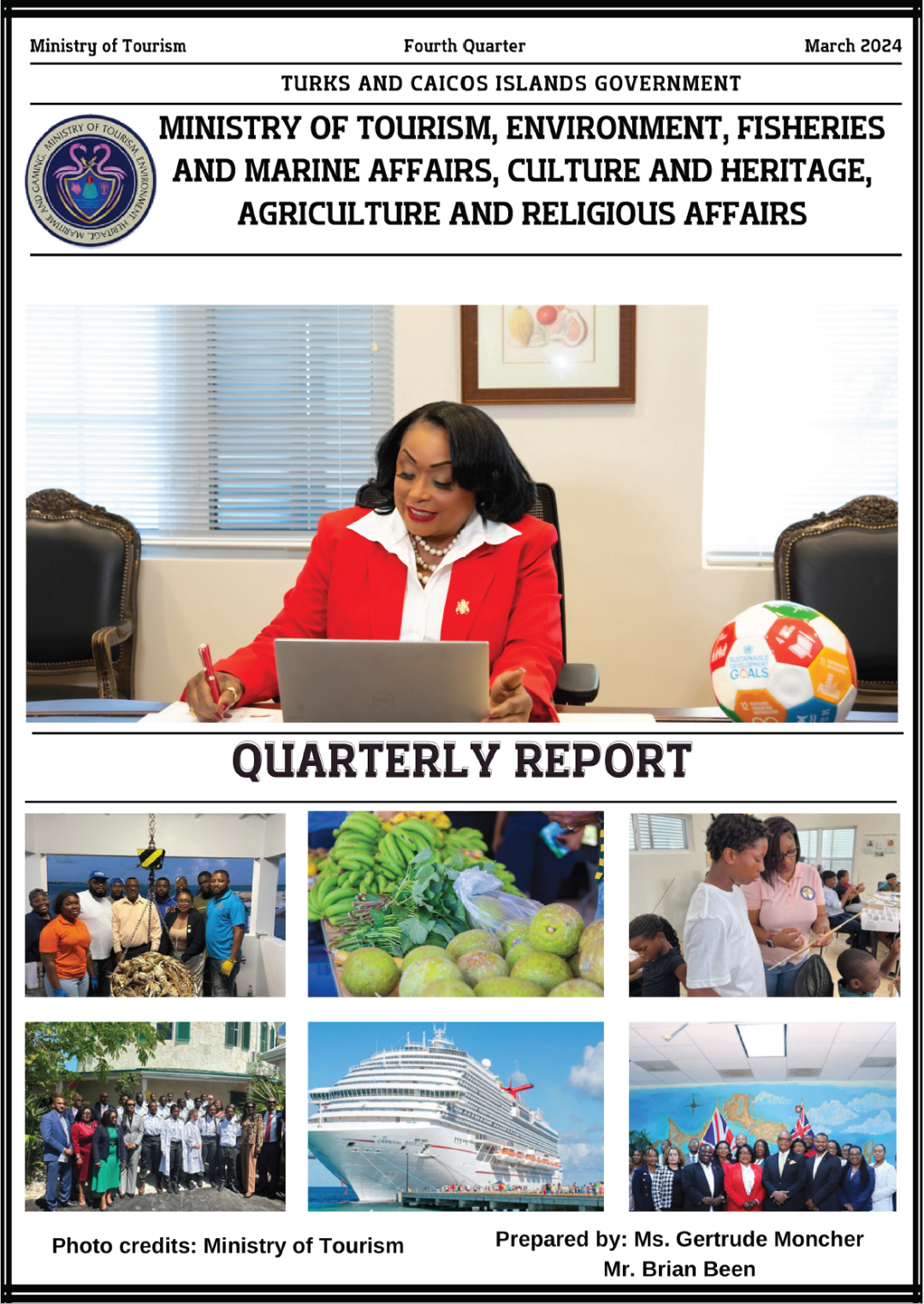
FOR IMMEDIATE RELEASE
Ministry of Tourism, Environment, Fisheries and Marine Affairs, Culture and Heritage, Agriculture, and Religious Affairs Delivers Impressive Quarterly Report on Achievements
April 4, 2024 – Providenciales, Turks and Caicos Islands – The Ministry of Tourism, Environment, Fisheries and Marine Affairs, Culture and Heritage, Agriculture, and Religious Affairs has released its quarterly performance report, (MOT Quarterly Report – Q4 -2023-2024.pdf ) showcasing a plethora of accomplishments across various sectors. From ground-breaking initiatives in agriculture to the preservation of cultural heritage, the Ministry’s efforts underscore its commitment to sustainable development and the enrichment of the Turks and Caicos Islands.
Agriculture Advancements
In the realm of agriculture, the Ministry has spearheaded several notable initiatives aimed at enhancing the sector’s productivity and resilience. Among the highlights is the successful launch of the “Business in a Box” initiative in Grand Turk and other Family Islands, providing local entrepreneurs with the tools and resources needed to thrive in the agricultural market. Furthermore, significant strides have been made in leveraging technology, with the advancement of an online platform following successful testing with staff and importers in Providenciales.
Moreover, the Ministry has demonstrated its dedication to animal welfare and biosecurity through the finalization of amendments and enactment for implementing the Dog Control, Animal Control, and Biosecurity Ordinances. Collaborative efforts with local NGOs, such as the Turks and Caicos Society for the Prevention of Cruelty to Animals (TSPCA), have resulted in tangible outcomes, including the sterilization of 230 animals through Spay and Neuter Clinics in January and February 2024.
Continuing its commitment to sustainable practices, the Ministry is actively engaged in ongoing cooperation with Ministry of Health officials and stakeholders to finalize the draft of the Pesticide Bill, further bolstering environmental protection and agricultural sustainability.
Fisheries and Marine Resource Management
In the domain of fisheries and marine resource management, the Ministry has demonstrated commendable progress in addressing key challenges and advancing strategic objectives. Efforts to bridge identified gaps in the TCI III Code Action Plan in preparation for the III Code Audit in 2024 underscore the Ministry’s commitment to international standards and best practices.
Additionally, the implementation of the Small Craft Policy and the initiation of a consultancy for sustainable livelihood assessment in collaboration with the Caribbean Regional Fisheries Mechanism (CRFM) highlight the Ministry’s proactive approach to fostering economic resilience and environmental stewardship.
Furthermore, significant investments have been made in infrastructure and legislation, including the approval of a supplemental budget of $200,000 USD for the construction of 800 additional lobster Casitas by commercial fishermen. Legislative advancements, such as the implementation of the Merchant Shipping Ordinance 2022 and supporting regulations, underscore the Ministry’s dedication to enhancing maritime safety and governance.
Department of Tourism Regulations
The Department of Tourism Regulations (DTR) continues to prioritize efficiency and excellence in its operations, with ongoing efforts focused on enhancing regulatory frameworks and facilitating industry growth. Initiatives such as the continuation of TIDES training and alignment of the DTR ordinance with Business Licensing underscore the Department’s commitment to professionalism and service excellence.
Furthermore, the Department remains dedicated to leveraging technology for streamlined processes, with the launch of QR codes for the Taxi Rating System and the development of an efficient online application process for accommodation licenses.
Experience Turks and Caicos Islands
Experience Turks and Caicos Islands (TCI) is committed to enhancing the tourism experience through strategic initiatives aimed at showcasing the destination’s unique attractions and cultural heritage. Collaborative efforts with the Department of Environment and Coastal Resources (DECR) and the National Trust have resulted in the enhancement of key sites such as Bambara, while new experiences such as fish fry events in Provo and Grand Turk promise to enrich visitor experiences and promote local culture.
Furthermore, the marketing team’s endeavours to develop a new website for Experience TCI and enhance destination signage underscore the Ministry’s commitment to promoting tourism growth and sustainability.
Cultural Preservation and Heritage
The Ministry’s dedication to preserving and celebrating the rich cultural heritage of the Turks and Caicos Islands is evident through its multifaceted initiatives aimed at showcasing local talent and traditions. The launch of a comprehensive cultural and heritage registry serves as a testament to the Ministry’s commitment to amplifying the voices of artisans, musicians, and cultural ambassadors across the archipelago.
Additionally, ongoing workshops and programs aimed at nurturing traditional skills and fostering community engagement underscore the Ministry’s dedication to preserving the cultural legacy of the TCI for future generations.
Conclusion
As the Ministry of Tourism, Environment, Fisheries and Marine Affairs, Culture and Heritage, Agriculture, and Religious Affairs continues to forge ahead with its strategic objectives, the quarterly performance report serves as a testament to its unwavering commitment to sustainable development, environmental stewardship, and cultural preservation in the Turks and Caicos Islands. Through collaboration, innovation, and dedication, the Ministry remains steadfast in its mission to build a brighter and more prosperous future for all residents and visitors alike.
For media inquiries, please contact: Head of Secretariate, Melissa Rolle, MROLLE@gov.tc
TRENDING
-

 Caribbean News1 week ago
Caribbean News1 week agoBarbados welcomes new aircraft
-

 News1 week ago
News1 week agoYoung Junkanoo Player stuck in Grenada flown home on private jet by Government
-
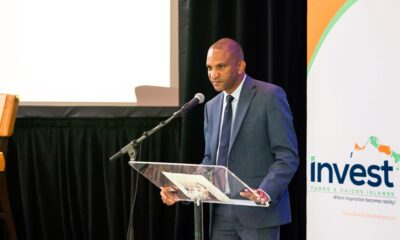
 Finance1 week ago
Finance1 week agoE. Jay Saunders and Team spearhead landmark change in Public Financial Management; Budget ROLL-OVERS now approved
-
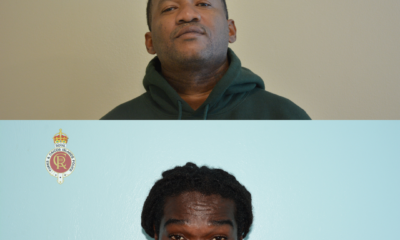
 Crime1 week ago
Crime1 week agoMales Charged with Firearm Offences
-

 Crime1 week ago
Crime1 week agoAvoid Credit Card Fraud, CIBC makes security changes
-
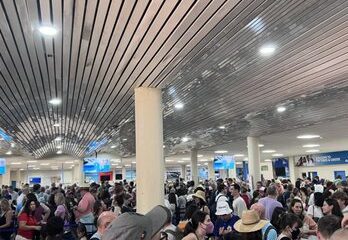
 TCI News1 week ago
TCI News1 week agoFear that Horrible Airport Reviews damaging TCI Tourism
-

 Africa1 week ago
Africa1 week agoUN Sec Gen says Africans must be honoured, supports reparations
-
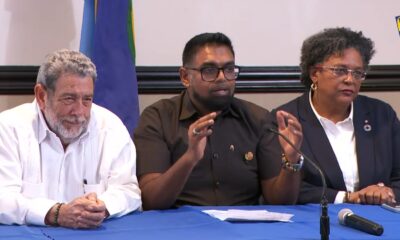
 Caribbean News1 week ago
Caribbean News1 week agoHaiti political update and Trinidad and Tobago not sending troops for mission

